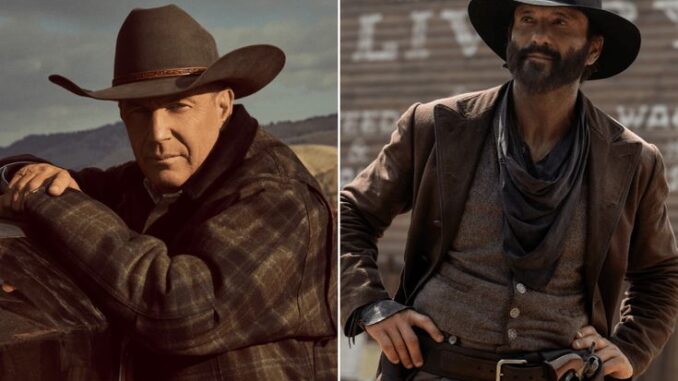
John Dutton: The Last Argonaut of the Yellowstone
The silhouette of John Dutton, astride a horse against the stark majesty of the Montana landscape, is an image etched into the American psyche by the series Yellowstone. He is the patriarch of the largest contiguous ranch in the United States, a man whose very being is intertwined with the land he defends. But is he a hero, a dictator, or a symbol of an ancient, perhaps brutal, America? The answer, like the rugged terrain he inhabits, is not singular but a complex topography of virtue, vice, and relentless defiance. John Dutton is all three, an anachronism forged in the crucible of a vanishing frontier, a character whose moral compass spins wildly between honorable tradition and desperate tyranny.
To call John Dutton a hero is to acknowledge the raw, unwavering commitment he displays in the face of existential threats. He is the bulwark against the tide of corporate greed, urban sprawl, and a modernity that seeks to commodify and homogenify everything it touches. His fight to preserve the Yellowstone Dutton Ranch is not merely about wealth or status; it is a battle for a way of life, for legacy, and for the soul of his family. He embodies a certain frontier stoicism, a willingness to get his hands dirty, and an unshakeable resolve that, in a world of compromise, feels almost mythic. When he faces down avaricious developers, corrupt politicians, or violent adversaries, one cannot help but admire his tenacity. He is a protector, a sentinel, standing guard over a heritage he believes is sacred, often at immense personal cost. His actions, driven by a primal need to defend his “tribe,” resonate with the archetype of the reluctant warrior, a man burdened by duty but unyielding in its execution. In a landscape increasingly devoid of authenticity, John Dutton’s unwavering adherence to his code, however flawed, feels like a last stand for something real.
Conversely, John Dutton’s method of governance and his familial relationships paint a stark portrait of a dictator. His ranch is less a family farm and more a personal fiefdom, ruled with an iron fist and an unshakeable belief in his own absolute authority. He demands unquestioning fealty, not just from his ranch hands, but from his own children, shaping their lives, manipulating their choices, and often sacrificing their individual happiness for the greater good of the Dutton name and the land. Jamie, his adopted son, is a tragic testament to this dictatorial control, forever stifled and psychologically tormented by John’s emotional abuse and refusal to acknowledge his separate identity. Beth, for all her fierce loyalty, remains entangled in a web of codependency and violence sanctioned, if not directly ordered, by her father. The infamous “train station,” a clandestine dumping ground for those who cross the Duttons, symbolizes the ruthless, extra-legal lengths John will go to maintain his power and protect his domain. His justice is swift, brutal, and often outside the bounds of law, reflecting a mindset where his word is the only law that truly matters. He micro-manages, he intimidates, and he crushes dissent, all under the guise of protecting the family, but ultimately serving his own unwavering vision.
Above all, John Dutton is a profound and poignant symbol of ancient America, a living relic of a frontier ethos that is both romanticized and deeply problematic. He embodies the spirit of Manifest Destiny, not as an expansionist force, but as an inheritor battling to hold onto what was claimed. His connection to the land is spiritual and visceral, representing a time when identity was inextricably linked to territory, and a man’s worth was measured by his acreage and his ability to defend it. Yet, this “ancient America” is not without its shadows. It is an America built on displacement, on violence, on patriarchal structures, and a fierce, sometimes isolationist, independence. John’s refusal to compromise, his reliance on brute force, and his disdain for modern bureaucracy speak to a pre-industrial, pre-globalized mindset. He is a ghost of the Wild West, a walking, breathing anachronism in a world that has largely moved on, grappling with the irony that the land he so vehemently defends was once wrested from another “ancient America.” His existence highlights the enduring myth of the cowboy, the lone figure standing against the wilderness, even as that wilderness shrinks and the challenges become more complex and systemic.
In the end, John Dutton is a character of immense contradictions, a man whose greatest strengths are also his greatest flaws. He is a hero to his cause, a dictator to his kin, and a living symbol of a vanishing, often violent, chapter of American history. He rides through the Montana dust, a figure of stoic defiance, forever locked in a battle with time itself. His struggle is not just for the Yellowstone, but for the very idea of what it means to be an American, an idea that is as grand and untamed as the mountains he calls home, and as dangerous and unforgiving as the wilderness within his own soul. His legacy will be debated, just as the American West continues to be, but his impact as a complex, unforgettable character is as enduring as the Dutton brand.
